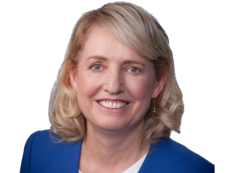
Legislative Council, Wednesday 12 November 2025
Ms FORREST (Murchison) – Mr President, I rise to speak in support of the Registration to Work with Vulnerable People Amendment Bill 2025. I understand the urgency and the nature of it and the briefings this morning to go through it in more rigorous detail.
This is not merely a technical amendment to our screening regime. In my view, this is Tasmania responding to a national agreement forged in the wake of some of the most harrowing child protection failures this country has ever witnessed. Whilst I acknowledge, sadly, the abuse of children and vulnerable people occurs in just about every setting you can imagine, including the family home, which we aren’t going near in this, I’m going to speak about some of the most recent horrific examples.
Before I get to that, Madam Acting President, the Standing Committee of Attorneys-General agreed in August 2025 to urgently implement mutual recognition of negative notices for Working with Children checks by the end of the year, and I’m pleased to see that Tasmania is acting to meet that commitment. I commend the government for acting as expeditiously on this and appreciate the feedback regarding the consultation, particularly taking on board the advice and suggestions from the the Interim Commissioner for Children and Young People.
I want to be clear to my mind as much as anybody’s why this really matters. We need to do all we can to close the gaps that have allowed predators to move between jurisdictions, exploiting the fact that our screening systems have operated in silos. In July this year, Victorians learned that Joshua Dale Brown had been charged more than 70 sex offences against eight children aged between five months and two years. He allegedly committed these crimes while working at a childcare centre in Point Cook between April 2022 and January 2023.
Here’s what makes this case particularly disturbing: police believe Brown worked at 23 childcare centres across Melbourne between January 2017 and May 2025 – 23 centres, eight years – and throughout this entire period he held a valid Working with Children check. Twelve hundred families were advised to have their children tested for infectious diseases as a precaution. The more I read about this I was sickened by it as a grandmother of children who go to childcare in Victoria. When I first saw this I went to look at the list and was gratified that the centres my grandchildren have been in weren’t on the list. However, that doesn’t make a dot of difference to the 1200 families that were.
The reason they had to be tested for infectious diseases, as one media report of this, was because there were bodily fluids in the food the children were eating. It just beggars’ belief. I hope you all feel ill at the moment because I did when I heard that. I forced myself to keep reading and listening to a podcast on it because I owed it to those children, those families, who had to suffer the lived experience. I had to read about it. I didn’t have to. I chose to read it, but I chose to listen to it. I can’t imagine what it would be like for those families. The more I learned the sicker I felt.
My heart absolutely goes out to all those families and innocent children who were victims. A lifelong impact is the lived reality for these families. They will never be able to move away from it. I know the fear I felt hearing that it might have occurred at a childcare centre where one of my grandchildren was, at that age, little tackers, little kids, innocent, being sent there by their parents who loved them dearly, thinking they were safe. And that’s what those parents did: sent those children to the daycare centres thinking they were safe.
Less than a year before the Brown case emerged, a Queensland court sentenced Ashley Griffith to life in prison for what has been described as one of the worst paedophile cases in Australian history. Griffith pleaded guilty to 307 charges, including 28 counts of rape involving 73 children he abused while working at childcare centres in Queensland and Italy between 2003 and 2022 – 307 charges, 28 counts of rape of children in a childcare centre. Over a period of nearly 20 years, dozens of centres, 73 children. The judge described his crimes as horrendous and noticed the profound breach of trust involved. Throughout much of this offending, Griffith held the credentials required to work with our most vulnerable.
Perhaps the most relevant to this bill before us is the case of Alexander Jones. In 2022, a Victorian Ombudsman investigation exposed what is called serious flaws in Victoria’s Working with Children check scheme. Jones was investigated for multiple alleged sexual offences in New South Wales, including allegations of rape and sexually exporting children. He was arrested and interviewed but never charged. When Jones applied for work in Victoria, his national police check was clean, because he’d never been charged. The New South Wales investigations didn’t appear. Even more remarkably, the Ombudsman found that Victoria’s legislation was so weak that even if authorities had known about the New South Wales investigations, they could not have refused his working with children clearance.
Clearly, we’ve had problems, and clearly this has been on the SCAGs radar for all the reasons we now understand. So many children, so many families, lifelong damage and harm. Jones went on to sexually assault a child in Victoria. The Ombudsman found that Victoria’s screening authority had among the most limited powers in Australia and called the situation one where some painful lessons have been learned. For the safety of our children, more needs to be done.
These cases expose a fundamental flaw in our nation’s approach to child safety. When someone’s ‘working with children check’ is refused or cancelled in one jurisdiction, that information must be recognised across state and territory borders. I thank those who have sit around the table and do this hard work on our behalf at SCAG. We cannot allow perpetrators to simply relocate and obtain fresh credentials elsewhere. The amendments before us implement mutual recognition of negative notices. If someone has had their registration cancelled or refused in another Australian jurisdiction, that decision wouldn’t be recognised here in Tasmania.
Our registrar will be required to cancel an equivalent Tasmanian registration when notified of an interstate cancellation or refusal. That’s good. I’m sure that there is improved communication between the various bodies that operate our schemes. This is precisely the kind of interstate information sharing that might have prevented Alexander Jones from moving from New South Wales to Victoria and committing another offence. It’s the kind of systemic reform called for by the Royal Commission into Institutional Responses to Child Sexual Abuse nearly a decade ago – the recommendation that Robert Fitzgerald, one of the commissioners, recently described as shamefully still unfulfilled at a national level. That’s why I understand the urgency and that’s why I’m happy to be dealing with this, now we’re dealing with it.
Our commission of inquiry into abuse of children in state care also identified flaws. Tasmania does indeed have an obligation to act. We cannot allow a screening system to be any a weak link that enables someone refused registration elsewhere to work with other vulnerable people here. Equally, we have the responsibility to ensure that when our registrar makes a determination that someone poses an unacceptable risk here, that decision is also recognised interstate.
The August SCAG agreement set out an end-of-year deadline for implementation precisely because this urgency is evident. Children are being harmed. Families are being traumatised. Public confidence in children and youth services has been shattered by these cases. I just can’t imagine the lived experience for so many of these people. The mainland case outlined demonstrates that perpetrators can and have worked across multiple centres, multiple states and multiple years while holding valid credentials. I went through the list with a fine-tooth comb, I will say, and I was appreciative of the Victorian government for publishing the names of the centres. In the Victorian case of Joshua Brown, he was a casual a lot of the time. He was only at some places for one day because he worked as a relief. This is one of the problems with these for-profit centres. Anyway, that’s a separate topic and I won’t go down that path.
I noted this bill responds to the immediate SCAG commitment on full recognition on negative notices, but I also note there are broad reforms needing this space, issues around information sharing between jurisdictions about investigations and allegations, not just completely determinations. The Victorian Ombudsman’s findings make clear that our screening systems still have limitations. The screening systems do have limitations in protecting our children. As we know you, you will get a clean Working with Vulnerable People and Children card if you haven’t been caught, it doesn’t mean you haven’t necessarily committed an offence, you just haven’t been caught or haven’t been caught yet. We do need to have other child safe systems robust to ensure as much as we possibly can that this doesn’t happen.
The principle underlying this bill is unassailable. We must close the interstate gaps that allow people assessed as unsuitable to work with children in one jurisdiction, to simply obtain a registration elsewhere. Every time we debate legislation in this place, we do so in the shadow of many failures. Failures that have devastated children and families. The Queensland case I mentioned involved nearly two decades of offending. The Victorian case has affected more than 1000 families and many, many children. The Alexander Jones case demonstrated how someone investigated for serious offences in one state, could still obtain a clearance in another.
This bill won’t solve every problem in our child protection system, but it takes a necessary step towards ensuring our screening regimes work together rather than isolation. It honours Tasmania’s commitment to the SCAG agreement, and it sends a clear message: that Tasmania will not be a destination where those refused registration elsewhere, can come here and start afresh. The protection of our vulnerable people, particularly children, must be our paramount concern. I thank the government for progressing this and I support the bill.

